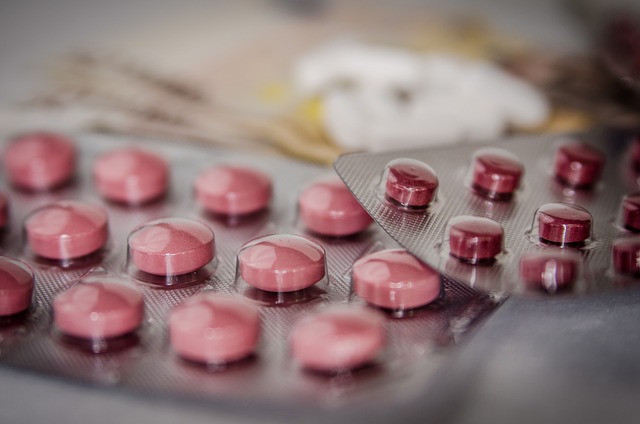The Vital Role of Medicine Delivery Drivers in Global Healthcare Logistics
Behind the scenes of global healthcare, medicine delivery drivers perform a role that affects millions. Coordinating complex logistics, these professionals ensure that time-sensitive pharmaceuticals are delivered under precise conditions. From handling temperature-controlled packaging to meeting strict delivery timelines, their work supports pharmaceutical stability and patient safety. This overview explores how healthcare systems worldwide rely on their accuracy, adaptability, and training to meet rising demands—especially during times of public health crisis. Understanding their responsibilities highlights just how essential they are in keeping medical care consistent and effective.

What Makes Pharmaceutical Logistics Careers So Critical?
Pharmaceutical logistics careers form the backbone of modern healthcare delivery systems. These specialized positions require professionals who understand that their work directly impacts patient outcomes. Unlike traditional package delivery, pharmaceutical logistics involves handling medications that may lose efficacy if exposed to improper temperatures, humidity, or handling conditions. The global pharmaceutical logistics market continues expanding, creating opportunities for dedicated professionals who can navigate complex regulatory requirements while maintaining the highest standards of care.
Medicine delivery drivers work within strict regulatory frameworks established by agencies like the FDA and DEA. They must understand chain of custody procedures, maintain detailed documentation, and follow specific protocols for different medication categories. These careers offer stability and growth potential, as healthcare systems increasingly rely on efficient distribution networks to serve aging populations and manage chronic conditions.
How Does Medical Courier Certification Work?
Medical courier certification programs prepare drivers for the specialized requirements of pharmaceutical transportation. These certifications typically cover topics including proper handling procedures for controlled substances, temperature monitoring protocols, documentation requirements, and emergency response procedures. Many programs also include training on HIPAA compliance, as drivers may encounter protected health information during deliveries.
The certification process usually involves both classroom instruction and practical training. Drivers learn to operate specialized equipment like temperature monitoring devices, secure storage systems, and GPS tracking tools. Some certifications require periodic renewal and continuing education to ensure drivers stay current with evolving regulations and best practices.
Why Is Temperature Controlled Delivery Essential?
Temperature controlled delivery represents one of the most critical aspects of pharmaceutical logistics. Many medications, including insulin, vaccines, and biologics, require specific temperature ranges to maintain their therapeutic effectiveness. Even brief exposure to temperatures outside these ranges can render medications ineffective or potentially harmful.
Modern temperature controlled delivery systems use sophisticated monitoring technology to track environmental conditions throughout the transport process. These systems can provide real-time alerts if temperatures deviate from acceptable ranges, allowing drivers to take immediate corrective action. Some vehicles are equipped with multiple temperature zones to accommodate different medication requirements simultaneously.
What Challenges Exist in Last Mile Healthcare Delivery?
Last mile healthcare delivery presents unique challenges that distinguish pharmaceutical logistics from other delivery services. Drivers must often coordinate with healthcare facilities that have specific receiving hours, security protocols, and documentation requirements. Many deliveries require signatures from authorized personnel, adding complexity to route planning and scheduling.
Rural and remote areas present additional challenges for last mile healthcare delivery. Drivers may need to cover extensive distances to reach isolated communities, often with limited backup options if problems arise. Weather conditions, road accessibility, and communication limitations can all impact delivery success in these areas.
What Unique Opportunities Exist in US Pharmaceutical Logistics?
The United States pharmaceutical logistics sector offers diverse career opportunities across different specializations. Major metropolitan areas like New York, Los Angeles, and Chicago have high concentrations of pharmaceutical companies, hospitals, and specialty pharmacies requiring delivery services. Rural areas often provide opportunities for drivers willing to cover larger territories and work more independently.
Specialized niches within the field include clinical trial logistics, where drivers transport investigational drugs between research sites, and home healthcare delivery, supporting patients who receive medications at home. The growth of specialty pharmacies treating complex conditions has created demand for drivers with additional training in handling high-value, temperature-sensitive medications.
How Do Salary Expectations Compare Across Different Roles?
Medical courier and pharmaceutical delivery positions offer varying compensation packages depending on specialization, location, and experience level. Understanding these differences helps professionals make informed career decisions within the healthcare logistics field.
| Position Type | Average Annual Salary | Key Requirements | Benefits Typically Offered |
|---|---|---|---|
| Entry-Level Medical Courier | $35,000 - $42,000 | Valid driver’s license, clean driving record | Health insurance, paid time off |
| Certified Pharmaceutical Driver | $45,000 - $55,000 | Medical courier certification, specialized training | Higher insurance coverage, retirement plans |
| Temperature-Controlled Specialist | $50,000 - $62,000 | Advanced certification, equipment training | Premium pay, specialized equipment training |
| Senior Logistics Coordinator | $55,000 - $70,000 | Management experience, multiple certifications | Leadership bonuses, comprehensive benefits |
Prices, rates, or cost estimates mentioned in this article are based on the latest available information but may change over time. Independent research is advised before making financial decisions.
Conclusion
Medicine delivery drivers serve as essential links in the global healthcare supply chain, ensuring that life-saving medications reach patients safely and on time. Their specialized skills in pharmaceutical logistics, temperature control, and regulatory compliance make them invaluable assets to healthcare systems worldwide. As healthcare delivery continues evolving, these professionals will play increasingly important roles in maintaining care quality and accessibility. The combination of stable career prospects, meaningful work, and opportunities for advancement makes pharmaceutical logistics an attractive field for dedicated professionals committed to supporting public health.
This article is for informational purposes only and should not be considered medical advice. Please consult a qualified healthcare professional for personalized guidance and treatment.




